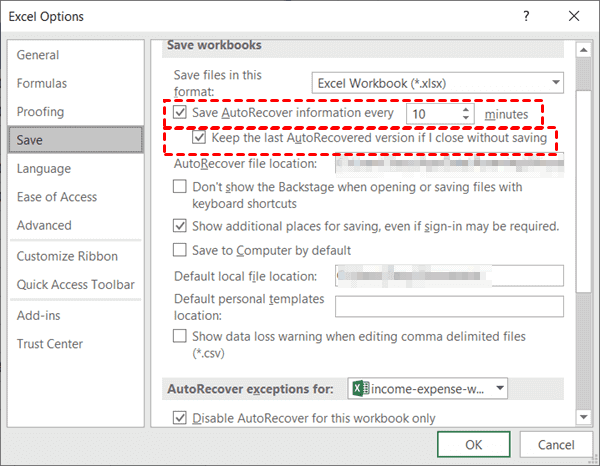Restore Your Data: Simple Excel Sheet Recovery Guide

The prospect of losing valuable data stored in an Excel sheet can be quite alarming for anyone, from a home user managing personal finances to a business analyst handling crucial datasets. Fear not, for in this comprehensive guide, we delve into the various methods of Excel sheet recovery to restore your data efficiently. Whether you've inadvertently deleted an important spreadsheet, encountered a software glitch, or are recovering after a system crash, this guide will walk you through the steps to regain access to your vital information.
Understanding the Causes of Data Loss in Excel

Before we get into the recovery steps, understanding how data loss happens can help in preventing future incidents:
- Accidental Deletion: This is the most common reason, where sheets are deleted accidentally.
- Corruption: Excel files can get corrupted due to various reasons, including system errors, sudden power cuts, or hardware issues.
- Application Crashes: Unstable software or conflicts can cause Excel to crash, leaving your work unsaved.
- Hardware Failures: A hard drive crash or faulty USB stick can cause data loss.
- Virus or Malware: Malicious software can compromise your system and lead to data corruption.
Step-by-Step Recovery Process

Here’s how you can recover your Excel sheets:
1. Check the Recycle Bin

If you’ve recently deleted an Excel file, the first place to look is the Recycle Bin:
- Open the Recycle Bin.
- Search for the name of the deleted Excel file.
- If found, right-click and select “Restore” to return it to its original location.
2. Use AutoRecover Files

Microsoft Excel has an AutoRecover feature that might save your recent changes:
- Open Excel and go to File > Info > Manage Workbook.
- Click on “Recover Unsaved Workbooks.”
- Navigate through the list to find your workbook and click “Open.”
⚠️ Note: AutoRecover might not save all changes if Excel crashed unexpectedly. Ensure AutoRecover is enabled and set to save frequently.
3. Temporary Files

Sometimes, Excel saves temporary files during editing:
- Use Windows File Explorer or Finder (for Mac) to search for files with the
.tmpextension. - Look for filenames that match your Excel sheet names.
- Rename the
.tmpfile to.xlsxto see if it opens.
4. Excel’s Built-In Repair Tool

If your Excel file is corrupted:
- Open Excel and navigate to File > Open.
- Select the problematic file, click the arrow next to the “Open” button, and choose “Open and Repair.”
- Choose between “Repair” or “Extract Data” options as needed.
5. Professional Data Recovery Software

For severe data loss scenarios, specialized recovery software can be very useful:
- Download and install a reputable data recovery software.
- Scan the drive where your Excel file was stored.
- Select the files you wish to recover and follow the software’s recovery process.
💡 Note: Make sure to download recovery software from trusted sources to avoid further data loss or malware infection.
Prevention is Better than Cure

To minimize the risk of data loss in the future:
- Regular Backups: Set up automatic backups to an external drive or cloud storage.
- Save Frequently: Get in the habit of saving your Excel work regularly.
- Version Control: Use version control features in cloud-based Excel to recover earlier versions of your work.
Implementing these preventative measures can significantly reduce the chances of needing to recover data.
Summing Up

Through this guide, we’ve explored various methods to recover lost Excel data, from using the built-in features of Excel itself to employing professional recovery tools. Remember, while recovery tools can be lifesaving, prevention through regular backups is the key to data security. By being proactive and understanding your tools, you can minimize the impact of data loss and keep your important Excel sheets safe.
How do I recover an Excel file from the Recycle Bin?

+
To recover an Excel file from the Recycle Bin, open the Recycle Bin, find your file by its name or type, right-click, and select “Restore.”
What if Excel’s AutoRecover doesn’t save my recent changes?

+
If AutoRecover fails to save your recent changes, you might need to check for temporary files or use recovery software for more in-depth recovery.
How can I prevent data loss in Excel?

+
Regularly back up your files, use cloud services for version control, enable AutoRecover, and save your work frequently.



